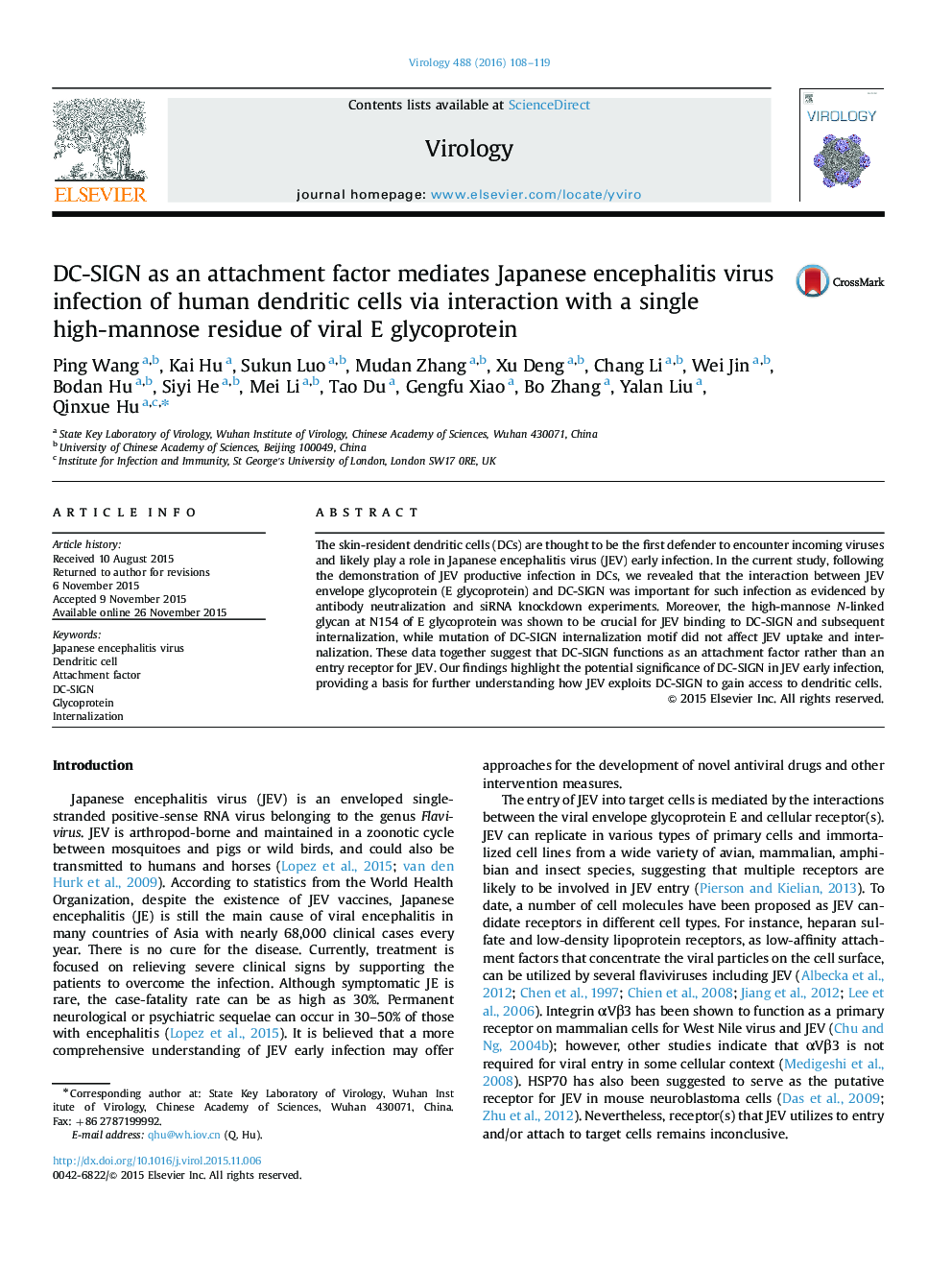| Article ID | Journal | Published Year | Pages | File Type |
|---|---|---|---|---|
| 6138873 | Virology | 2016 | 12 Pages |
â¢Dendritic cells support JEV productive infection.â¢DC-SIGN-mediated JEV binding leads to enhanced viral infection.â¢High-mannose N-linked glycan at N154 of E glycoprotein is essential for JEV binding to DC-SIGN.â¢The endocytic activity of DC-SIGN is not required for JEV internalization.
The skin-resident dendritic cells (DCs) are thought to be the first defender to encounter incoming viruses and likely play a role in Japanese encephalitis virus (JEV) early infection. In the current study, following the demonstration of JEV productive infection in DCs, we revealed that the interaction between JEV envelope glycoprotein (E glycoprotein) and DC-SIGN was important for such infection as evidenced by antibody neutralization and siRNA knockdown experiments. Moreover, the high-mannose N-linked glycan at N154 of E glycoprotein was shown to be crucial for JEV binding to DC-SIGN and subsequent internalization, while mutation of DC-SIGN internalization motif did not affect JEV uptake and internalization. These data together suggest that DC-SIGN functions as an attachment factor rather than an entry receptor for JEV. Our findings highlight the potential significance of DC-SIGN in JEV early infection, providing a basis for further understanding how JEV exploits DC-SIGN to gain access to dendritic cells.
